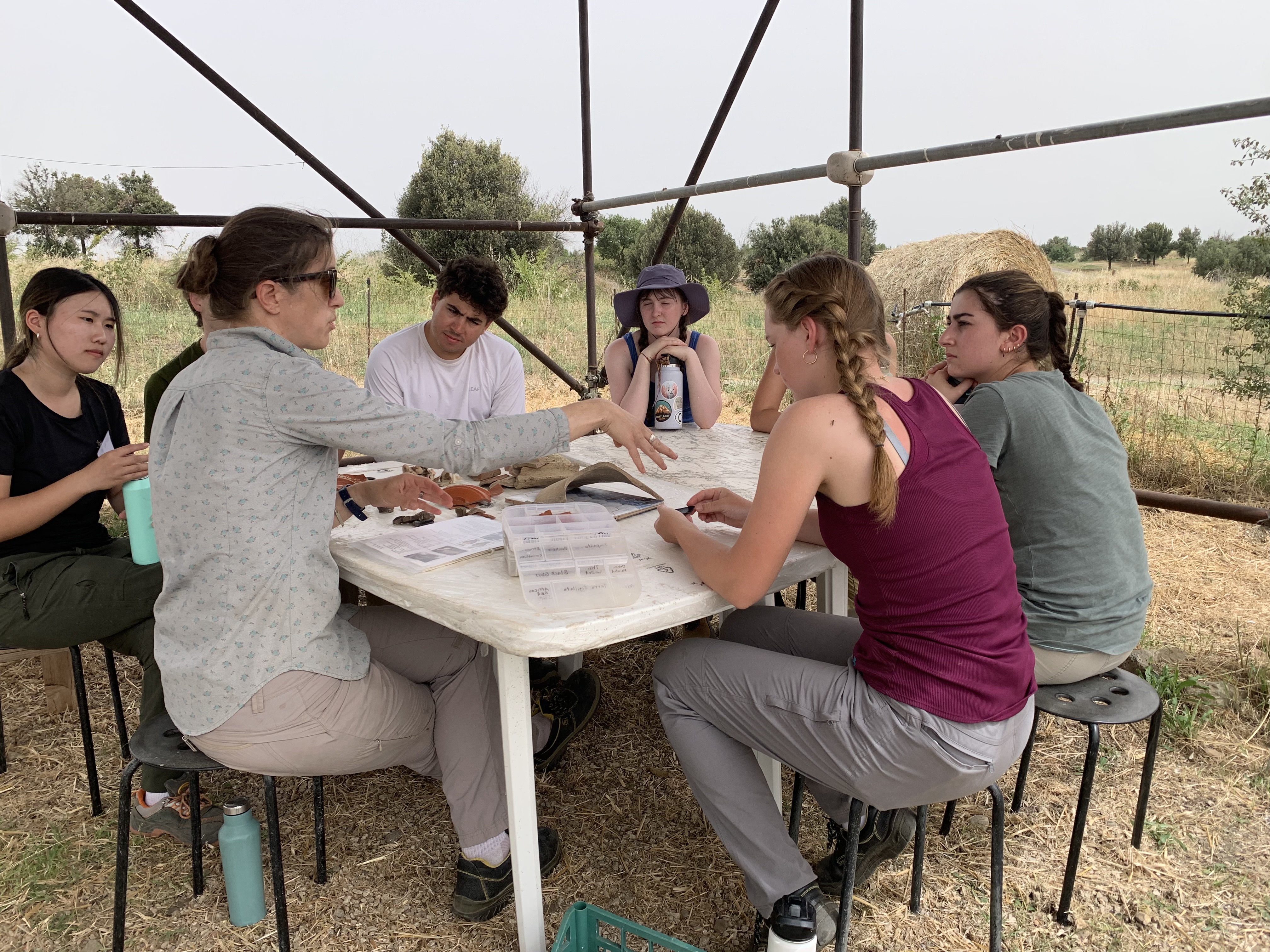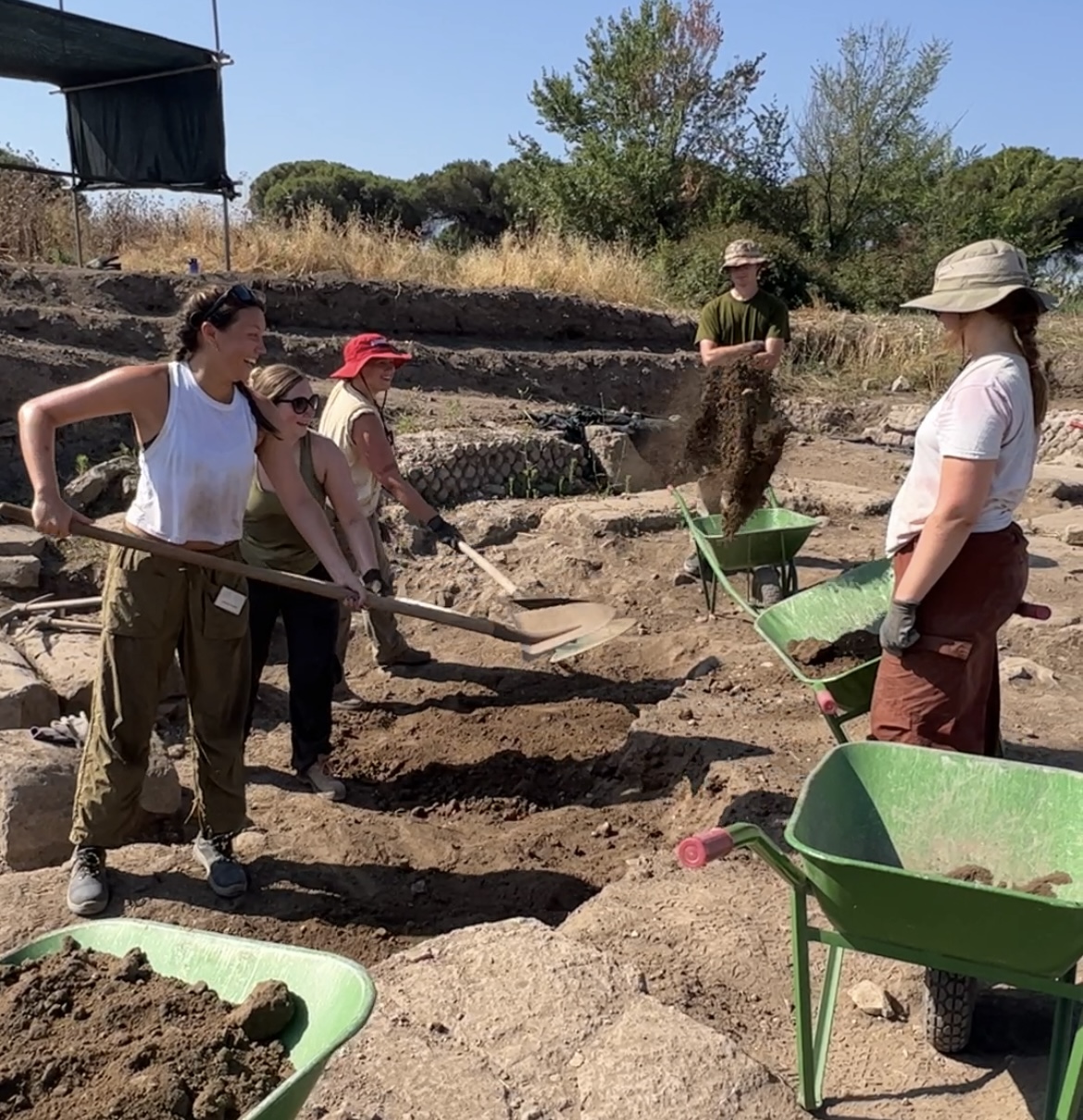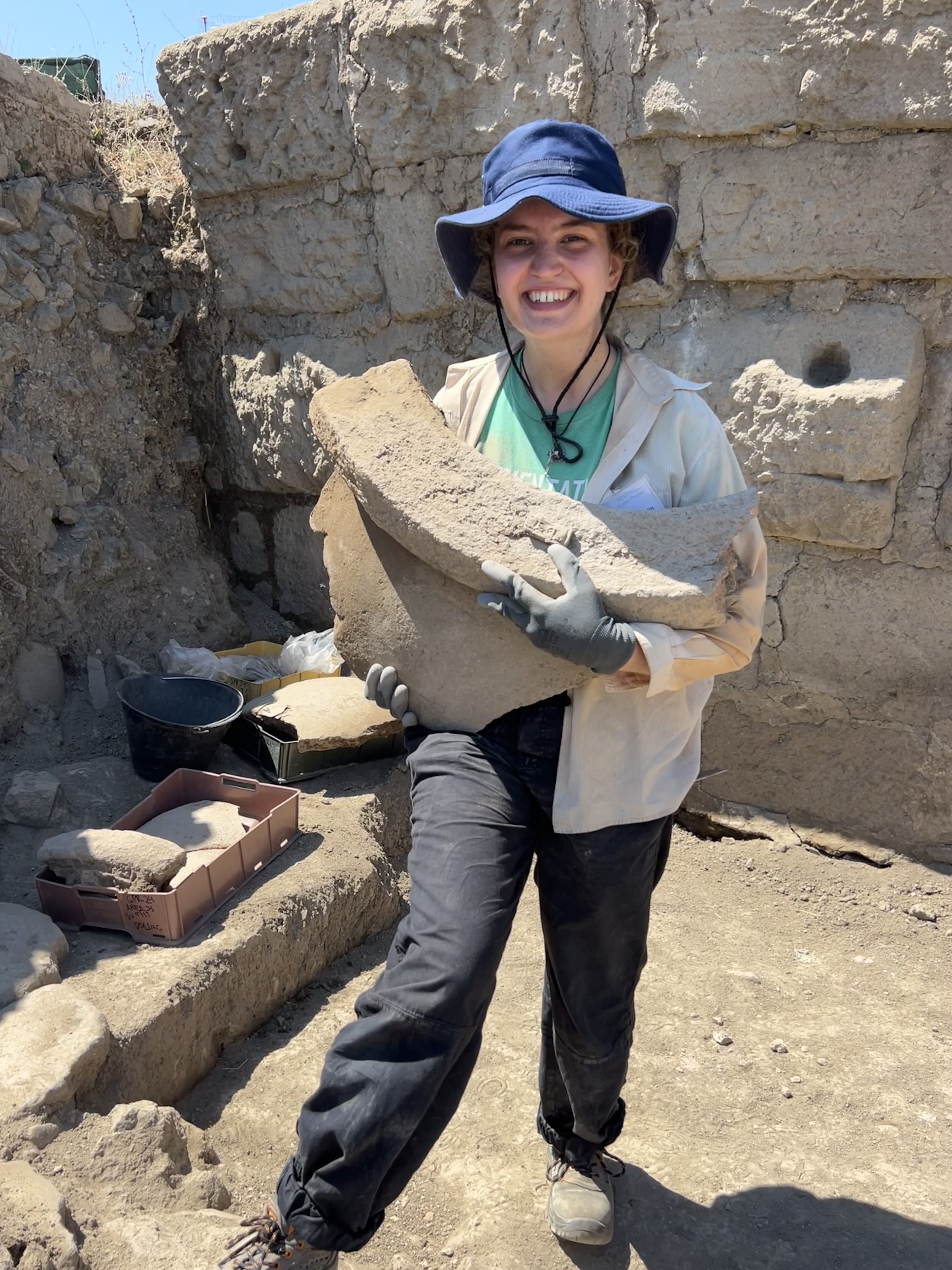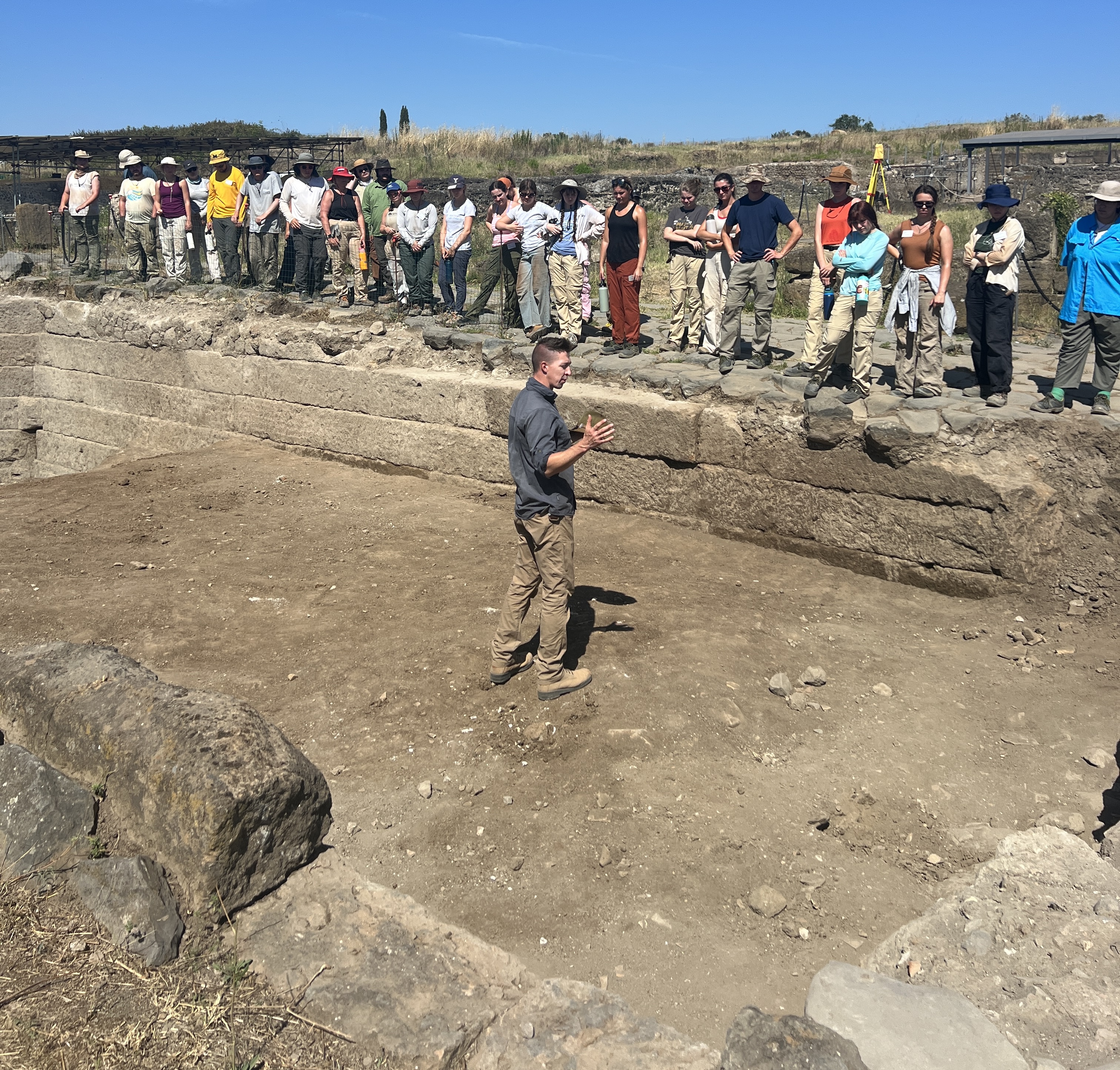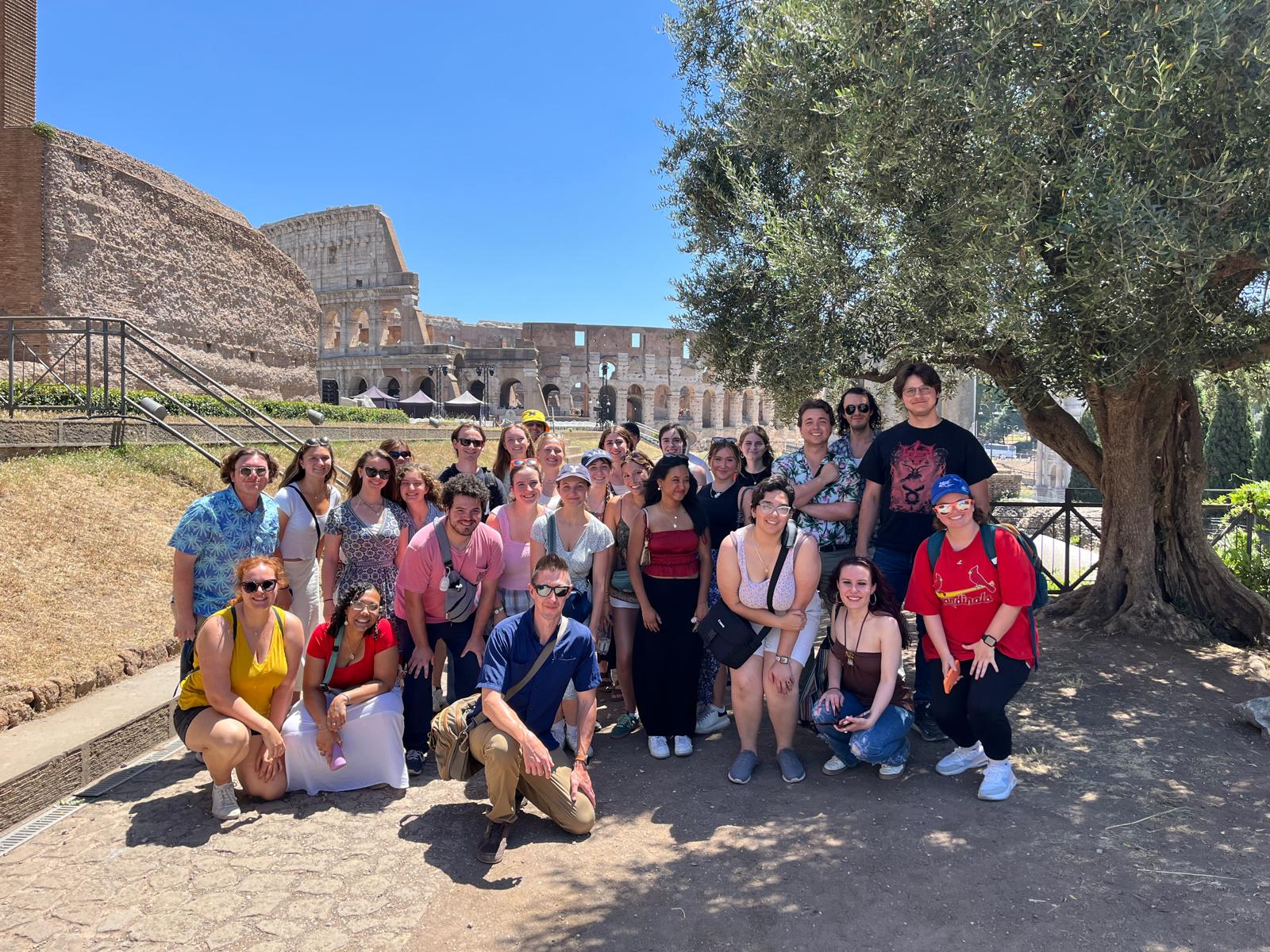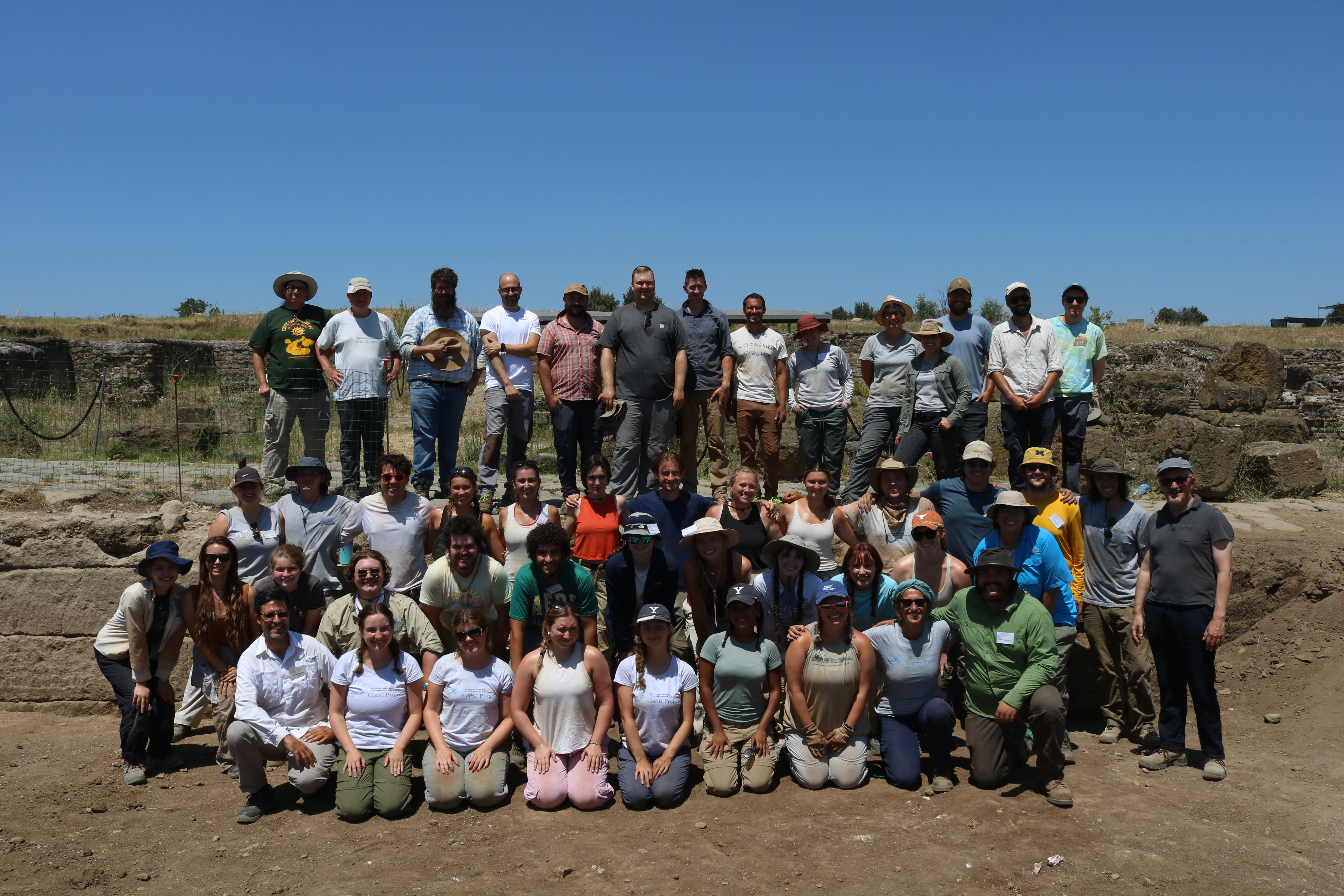2026 Summer Field Program
The Gabii Project will offer a field program for students and volunteers in 2025; the program will run from June 7 (arrival) until July 11, 2026 (departure).
The cost for the 5-week program will be $6,450 (USD) .
What is included
- Accommodations in Frascati (Metropolitan Area of Rome) with half board (breakfast and dinner).
- Insurance, equipment, local transportation, weekday lunches, select museum fees.
- 24/7 logistical support.
- Not included: international flights.
- We are willing to facilitate arrangements to help students get credit from their home institutions.
In order to apply
All qualified students are eligible to apply, not just those associated with the University of Missouri.
Submit your full application online via the project’s website by December 2, 2025 and get notified of your acceptance by December 15, 2025. Accepted participants must submit a $1,290 registration deposit payment by January 15, 2026, in order to secure their spot. Further payment instructions will be shared at a later stage. No volunteer may participate in the program if the program fee has not been settled in full by March 30, 2026.
Work and instruction on-site at Gabii
- Volunteers will work on-site Monday through Friday, usually arriving on-site by 7.30am and leaving around 4.30pm.
- Volunteers will work in small teams supervised by experienced excavators. Additionally, the field program will expose participants to all facets of fieldwork, including working with ceramics and other archaeological materials, environmental sampling, flotation, topography, conservation, and documentation in order to deepen knowledge of the materials one typically excavates.
Dr. Laura Banducci (Director of the Finds and Finds School) teaching students how to draw pottery fragments found on the site (2024 Excavation Season).
Students caught mid–shovel toss in Area J North (2024 Excavation Season).
Student posing with a dolium fragment in Area J South (2024 Excavation Season).
- Regular site tours (usually once every 7 to 10 days) will help keep all team members up to speed on the progress of excavation work in the various areas of the site.
Dr. Andrew Johnston (Director of the Field School) giving a tour of Area J North’s excavation progress to field school participants (2024 Excavation Season).
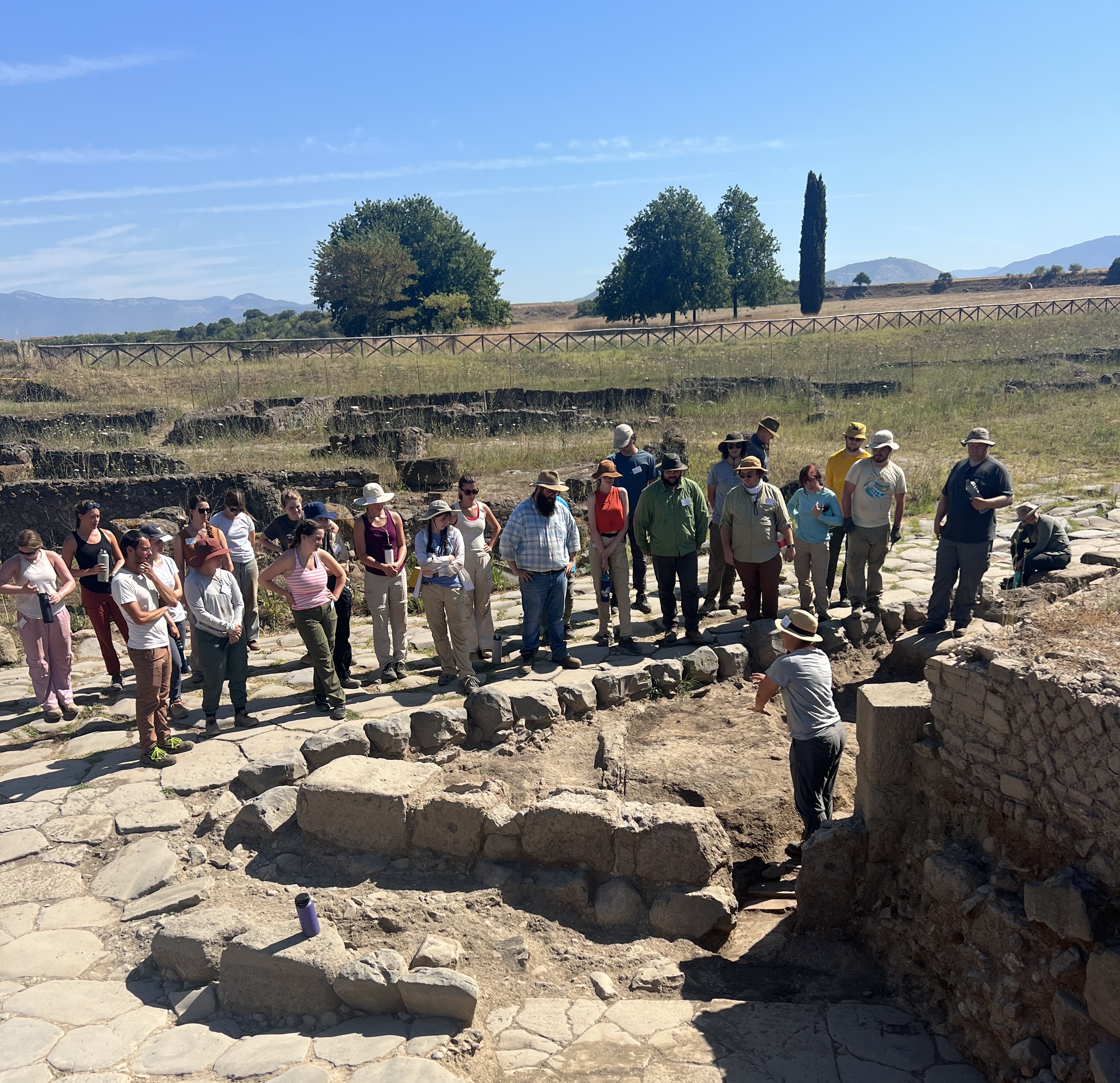 Dr. Sheira Cohen giving a tour of Area J South’s excavation progress to students (2024 Excavation Season).
Dr. Sheira Cohen giving a tour of Area J South’s excavation progress to students (2024 Excavation Season).
- Several optional weekend outings will be arranged where guided tours will be offered by staff members. In past years weekend trips have included the Forum Romanum and Palatine Hill, the Museum and Archaeological Park of Praeneste, and Hadrian’s Villa.
Dr. Andrew Johnston (Director of the Field School) giving a tour of the Forum Romanum to Gabii Field School students (2024 Excavation Season).
Atmosphere and Experience
- The Gabii Project is a large team (50+ people) effort. Teamwork is the key to our success, but the working conditions can be intense. The successful applicant will be ready to work as part of a large team and welcome the opportunity to work and learn cooperatively.
The 2024 Gabii Field School Team posing for the end of season photos (2024 Excavation Season).
- The combined experience of the Gabii Project’s multi-national staff offers volunteers the opportunities to learn and practice some of the latest and most cutting edge techniques of field archaeology. Additionally, an excellent staff to student ratio guarantees close instruction in field methodology.
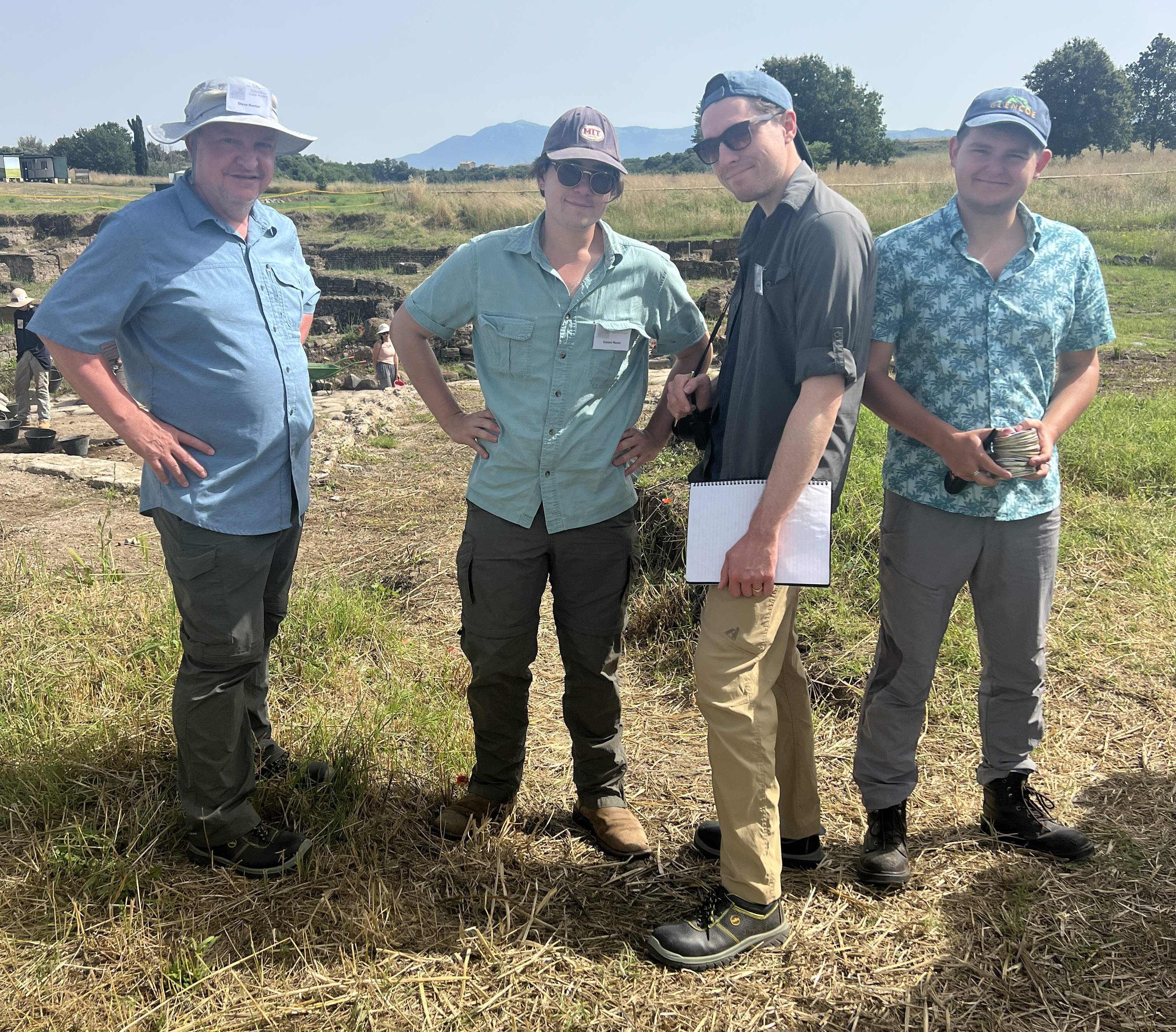 Some members of the Photogrammetry and Geographic Information System (GIS) Team pausing work for a photo (2023 Excavation Season).
Some members of the Photogrammetry and Geographic Information System (GIS) Team pausing work for a photo (2023 Excavation Season).
Health Considerations
Travel
- Volunteers are responsible for covering their own travel costs to and from Italy.
- The point of arrival is Rome, Italy. Rome is served by two airports that handle international traffic. These are Leonardo da Vinci airport, also known as Fiumicino (FCO), and Ciampino airport (CIA) [also known as Aeroporto di Roma-Ciampino or Giovan Battista Pastine Airport]. Fiumicino handles long-haul international flights while Ciampino tends to receive short-haul, EU zone carriers.
- The arrival packet distributed to confirmed volunteers will include specific arrival information and information and logistical details.
Accommodation
-
- The team will be accommodated in hotel rooms (all double bedrooms) provided and administered by the Centro Giovanni XXIII in Frascati (Metropolitan Area of Rome)
- On-site 24-hour/7-days-a-week logistical support is also included.
- The program fee covers breakfast and dinner at the Centro Giovanni XXIII as well as the cost of lunch (Monday-Friday).
- The team will be accommodated in hotel rooms (all double bedrooms) provided and administered by the Centro Giovanni XXIII in Frascati (Metropolitan Area of Rome)
External funding
-
-
-
- Students accepted for the field program are encouraged to seek outside funding sources to support their participation as the Gabii Project does not offer need-based financial support.
- Possible sources include one’s home department or institution, as well as various competitive fieldwork fellowships like those administered by the Archaeological Institute of America and the Etruscan Foundation.
-
-
For more information, please contact Dr. Marcello Mogetta or Dr. Andrew Johnston by email (gabii.project@gmail.com).




